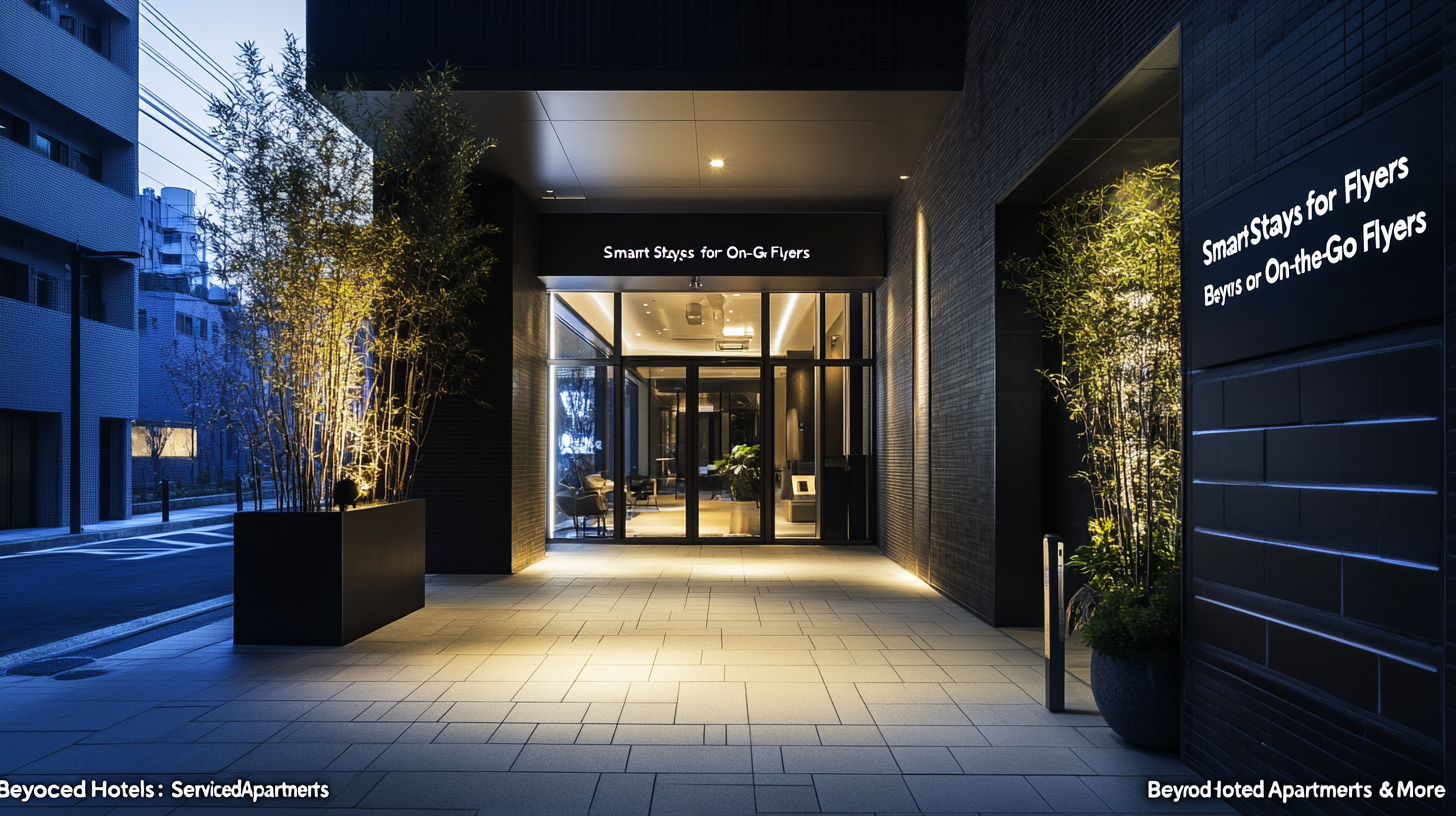Smart Stays for On-the-Go Flyers
When I head out on a work trip, comfort and location top my priority list. Balancing convenience with cost-effectiveness can truly make or break my schedule. Over the years, I’ve found plenty of ways to secure exclusive deals with hotels and alternative accommodations, keeping me close to the action while protecting my travel budget.
1. Hotels with Exclusive Business Rates

One of the easiest ways I’ve managed to trim travel expenses is by tapping into discounted business rates, which can be anywhere from 10–50% lower than public prices—often without requiring any special membership. According to a 2024 Global Business Travel Association forecast, companies that leverage business hotel rates effectively could save thousands each year. From my own experience, just asking a hotel staff member about corporate deals directly can open up a trove of savings.
I once snagged a corner suite in downtown Singapore for almost half the standard price simply by mentioning my organization’s name. These perks go beyond just price cuts: many chains, such as Marriott, Hilton, and Hyatt, let me stack loyalty points on top of the discount so I can eventually redeem free nights or even room upgrades for leisure trips. For conferences or team travel, negotiating group corporate rates can also drive expenses down even further.
Building relationships with specific hotel sales managers has been priceless in my experience. Sometimes, a short email or friendly phone call is enough to unlock additional perks or confirm last-minute adjustments. These small connections can lead to bigger surprises, such as complimentary breakfast vouchers or late checkout options.
2. Specialized Booking Platforms

Specialized booking platforms like Booking.com for Business and TravelPerk have become my trusted sidekicks for streamlining work trips. Industry data suggests some of these platforms cut administrative booking times by up to 30%, helping me see real benefits when juggling tight deadlines. Booking.com for Business grants me flexible cancellations and exclusive rates, and I can bundle flights and hotels effortlessly.
Meanwhile, TravelPerk’s real-time itinerary tracking came in handy during a group trip to Berlin with 25 colleagues, where organizing flights, hotel rooms, and ground transfers under one system was a breeze. Another platform I keep on my radar is SKIL Travel, which pairs competitive rates with concierge services, visa assistance, and 24/7 support. I appreciate knowing there’s help at my fingertips, especially when traveling abroad.
On top of that, platforms like Airbnb for Work have shown me a broader range of lodging options beyond standard hotels. Their built-in tools let me manage expenses, verify secure neighborhoods, and keep track of team bookings. It’s a relief to have so many choices in one place when last-minute changes are practically guaranteed in my line of work.
3. Beyond Hotels: Serviced Apartments & More

I’ve learned that sometimes hotels just don’t cut it—especially for longer stays or when craving a more homey setting. Serviced apartments, short-term rentals, and co-living spaces offer amenities like full kitchens, cozy living areas, and enough space to work comfortably. I remember staying in a serviced apartment in Sydney for a two-week workshop; having my own kitchen saved time and helped me stick to a healthier eating routine.
Aside from the convenience, these alternatives can also be easier on the wallet for extended trips. A friend of mine, who regularly travels for tech consulting, swears that an apartment’s separated workspace and living area boost productivity in ways a single hotel room can’t. And let’s be honest, being able to do laundry in-unit is a major plus for hectic schedules.
For those who crave community, there are also modern hostels and guesthouses equipped with private rooms and communal coworking lounges. I’ve met fellow entrepreneurs over a shared pot of coffee in one of these spaces, turning a short acquaintance into a potential business partner. It’s proof that sometimes the best networking happens off the conventional path.
4. Key Amenities & Sustainability

Reliable Wi-Fi is a lifetime essential for me as a frequent flyer. Statista reported that 68% of business travelers rank internet speed as their top amenity requirement, and I couldn’t agree more. Nothing derails a project faster than a shaky connection during a critical video call, so I always read reviews or call in advance to confirm the Wi-Fi quality.
Next on my list is flexibility. Plans often shift at the last minute, so booking sites that allow free or low-cost cancellations have saved my wallet multiple times. I also prioritize hotels offering robust safety measures, including well-lit parking areas and secured room access, which can be crucial when arriving late from an evening flight.
Finally, I’m increasingly drawn to venues with eco-friendly credentials. A 2023 Sustainable Hospitality Benchmark showed that businesses integrating green initiatives—from energy-saving appliances to LEED-certified building designs—attract repeat bookings more often. Supporting properties that invest in the environment feels like a responsible choice, especially when traveling constantly in 2025’s interconnected world.
5. The Bottom Line

Over the years, I’ve discovered there’s no single universal formula for the perfect corporate stay. Instead, I focus on matching accommodations to my unique itinerary, budget, and traveling style. Whether I’m leveraging discounted business rates or settling into a serviced apartment for a week, every decision affects my overall travel experience.
Along the way, I’ve learned to lean on specialized platforms that handle the nitty-gritty details, from expense tracking to last-minute itinerary changes. I also try to stay open to new apps and booking solutions because everything from major chain hotels to offbeat lodging can add value to a business trip. A sense of adventure never hurts—after all, some of my best travel stories started when I was willing to stray from the norm.
Final Thoughts
In the end, business travel in 2025 comes down to a strategic blend of budgeting, planning, and exploration. By comparing discounts, tapping into specialized tools, and looking beyond the traditional hotel scene, I’ve often walked away with more flexible, comfortable, and memorable stays.
As technology continues reshaping our travel landscape, I’m convinced we’ll see even more emphasis on streamlined booking processes, eco-friendly features, and personalization—letting us tailor each trip to our preferences. I’ve found that balancing professional obligations with a touch of personal discovery can transform a routine work trip into a chance to learn, network, and grow.
Barry B.’s Take
I love how these days you can head to just about any corner of the globe and find an accommodation style that perfectly suits your needs. My tip: don’t be shy about reaching out directly to hotel managers or support teams on booking platforms. A clever question or two can reveal little-known discounts or perks that can make all the difference.
Some of my best memories have come from exploring quirky neighborhoods thanks to a serviced apartment or renting a smaller-scale co-living space. There’s always a story waiting for you at your next city stop—you just have to step outside the usual hotel corridor to find it.
Check out milesBUZZ for even more insider tips and to stay in the loop on all things travel.







